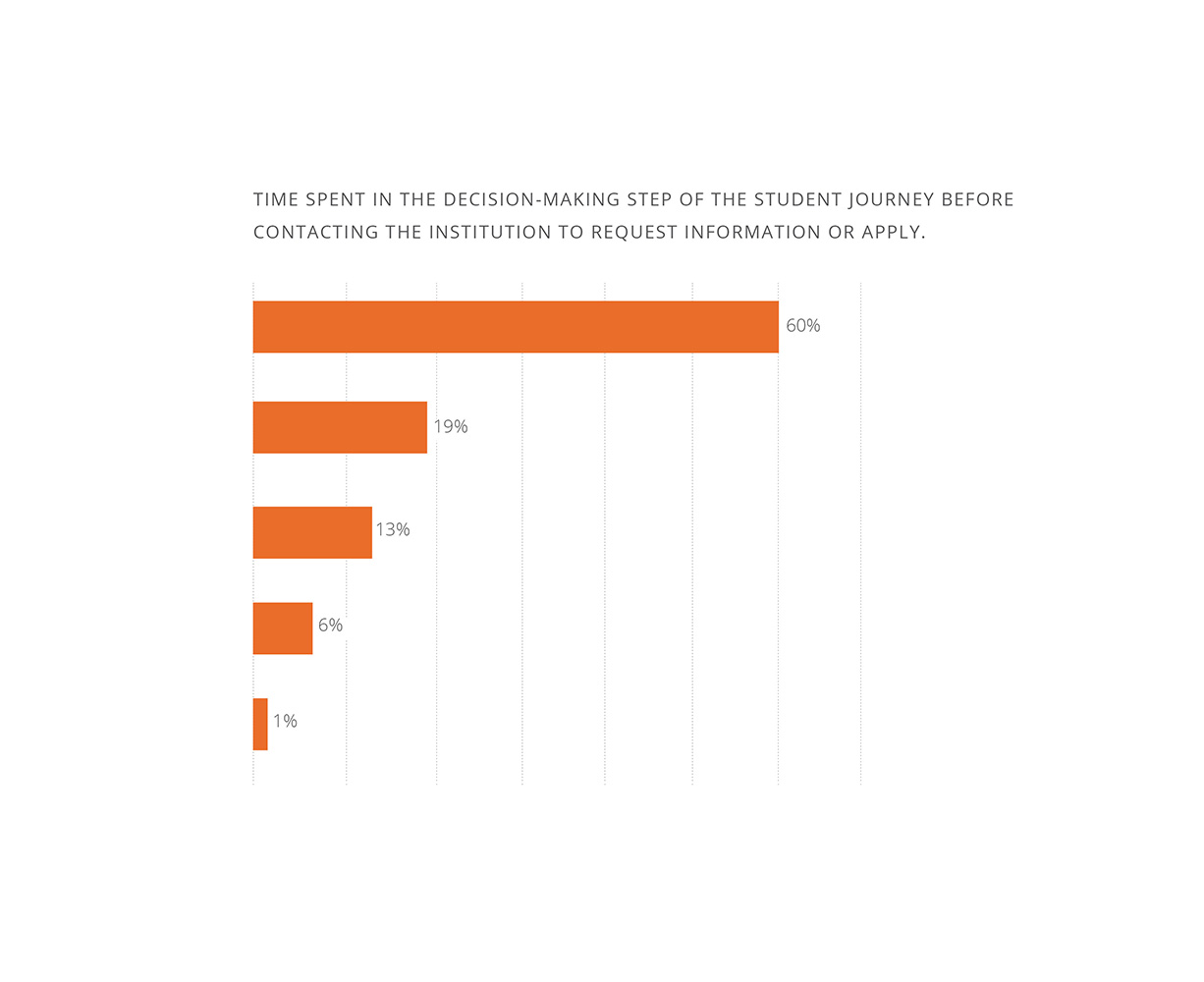Sign up for our LAVY email
and get our bi-monthly newsletter.
This article is a brief abstract of our exclusive study that takes the guesswork
out of education advertising and marketing.
Download LAVIDGE Education Marketing Research and Insights, Volume 1.
Completing a trade, technical, career, university or junior college education program can exponentially improve one’s status in life in addition to fulfilling personal goals. It logically follows that where to enroll and what course of study to pursue are arguably among the most important life decisions one can make.
 Conversely, the majority of study respondents indicated that they spend more than two weeks, after their initial request for information, as they continue to research potential educational options before contacting them for more details. This finding holds consistent across all demographics.
Conversely, the majority of study respondents indicated that they spend more than two weeks, after their initial request for information, as they continue to research potential educational options before contacting them for more details. This finding holds consistent across all demographics.
Here’s the breakdown:
Of course, there are always outliers. Of those who said they spend more than two weeks researching schools before reaching out for additional information, a significant number of respondents indicated they would need about two months to fully investigate them. Slightly fewer reported three months would allow sufficient time, and an equal number of respondents said they’d need more than six months.
Those who said they’d need longer than six months or up to a year were few and far between but were represented in our study. So were those who said they could wrap it up within 20 minutes of perusing a school’s website.
Here’s a sampling of what they had to say regarding the matter:
“[I need] a few weeks of comparing and contrasting programs, pricing, and program lengths.”
“[It took me] about 6 to 8 months looking at ads and making calls to schools.”
“[I’d be willing to research] as long as it takes. No certain amount of time. As long as I’m satisfied with all the information gathered.”
“[It would] depend on what I was looking for … a degree, job education, or just for me.”
“[I took] enough time to read a few pages on their website, so maybe 20 minutes or so.”
“I looked for about 2-3 weeks at schools before deciding.”
“I spent three weeks learning about and decided to go to Chandler-Gilbert Community College.”
“I took about two weeks researching and evaluating schools before I made my choice.”
“Not long. I applied to a university two semesters before getting my associates. I knew I would be applying to ASU because it’s the go-to university out here for residents.”

First impressions are important. But so is follow-up when it comes to recruiting students to your college, trade school or university.
Interestingly, in addition to ranking highest as the initial information-gathering method, study respondents in the Southwest who wanted to learn more also ranked campus visits as most influential. This varies slightly from national statistics noted by the American College Foundation. While some students begin touring campuses as high school juniors, the foundation’s website states, most wait until their senior year and they have already chosen their top-six favorite schools.
Here’s our breakdown:
Sure, site visits are great. Really great. Respondents to our education industry study, however, did suggest numerous creative ways they’d like to be educated on their learning options including:
Sign up for our LAVY email
and get our bi-monthly newsletter.